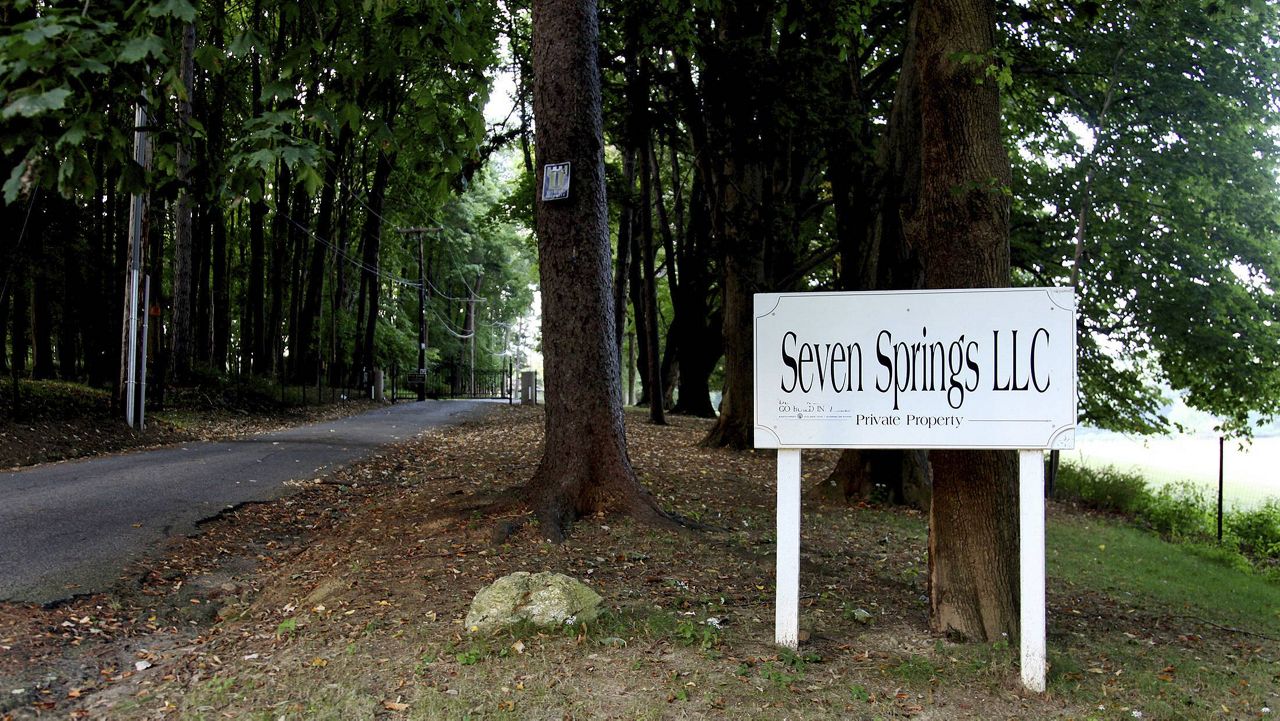ALBANY, N.Y. — New York Attorney General Letitia James is reportedly investigating whether the Trump Organization improperly inflated the value of one of its properties in order to receive a $21.1 million tax break.
According to The Washington Post, James is looking into President Donald Trump’s Seven Springs estate in Westchester County, New York. In exchange for promising in 2015 to preserve more than 150 acres of woodlands on the property, Trump received the massive tax break as part of a conservation easement on the property, according to court documents.
Trump secured the windfall based on a 2016 appraisal that valued Seven Springs at $56.5 million, the Post reported. That figure was more than double the value assessed by the three towns that each contain a piece of the property, according to the newspaper.
Eric Trump, one of the president’s sons who helps run the Trump Organization, sat for a deposition in the case Monday.
Two independent appraisers who reviewed the document at the Post’s request said it appears the Seven Springs appraisal relied on unsupported assertions and misleading conclusions that increased the value of Trump’s charitable gift. The appraisal was written by the commercial real estate firm Cushman & Wakefield.
At issue is the firm’s claim that a future buyer could build and sell 24 mansions on the land, despite there being no evidence that local regulations would allow for such a subdivision. The Post noted that local opposition and environmental disputes have prevented Trump from building a golf course and various housing developments there.
The appraisal also said the land that was preserved had no economic value of its own, which one of the independent appraisers called “crazy.” The tax break is calculated by subtracting the value of the property from the value when it could be developed.
A spokesman for Cushman & Wakefield told the newspaper it does not comment on ongoing litigation. One expert told The Post the firm did a “competent” job with the appraisal.
Alan Garten, chief legal officer at the Trump Organization, called the allegations “categorically untrue.” Last month, he accused James of politically motivated harassment against the company.
Aside from the tax easement, The New York Times recently reported that in 2014 Trump classified Seven Springs as an investment property and wrote off $2.2 million in property taxes as a business expense, even though the Trump Organization even today describes the mansion on its website “as a retreat for the Trump family.”
James is also examining valuations, tax burdens and conservation easements at Trump’s holdings in Los Angeles, Chicago and New York City, according to the Post.
Manhattan District Attorney Cy Vance is, too, investigating Trump and his business practices. Vance has not said publicly what potential crimes he is looking into, but previous court filings suggest he could be investigating possible tax, bank and insurance fraud and falsification of business records as well hush-money payments made just before the 2016 election to a porn star and Playboy model who say they had sex with Trump.



